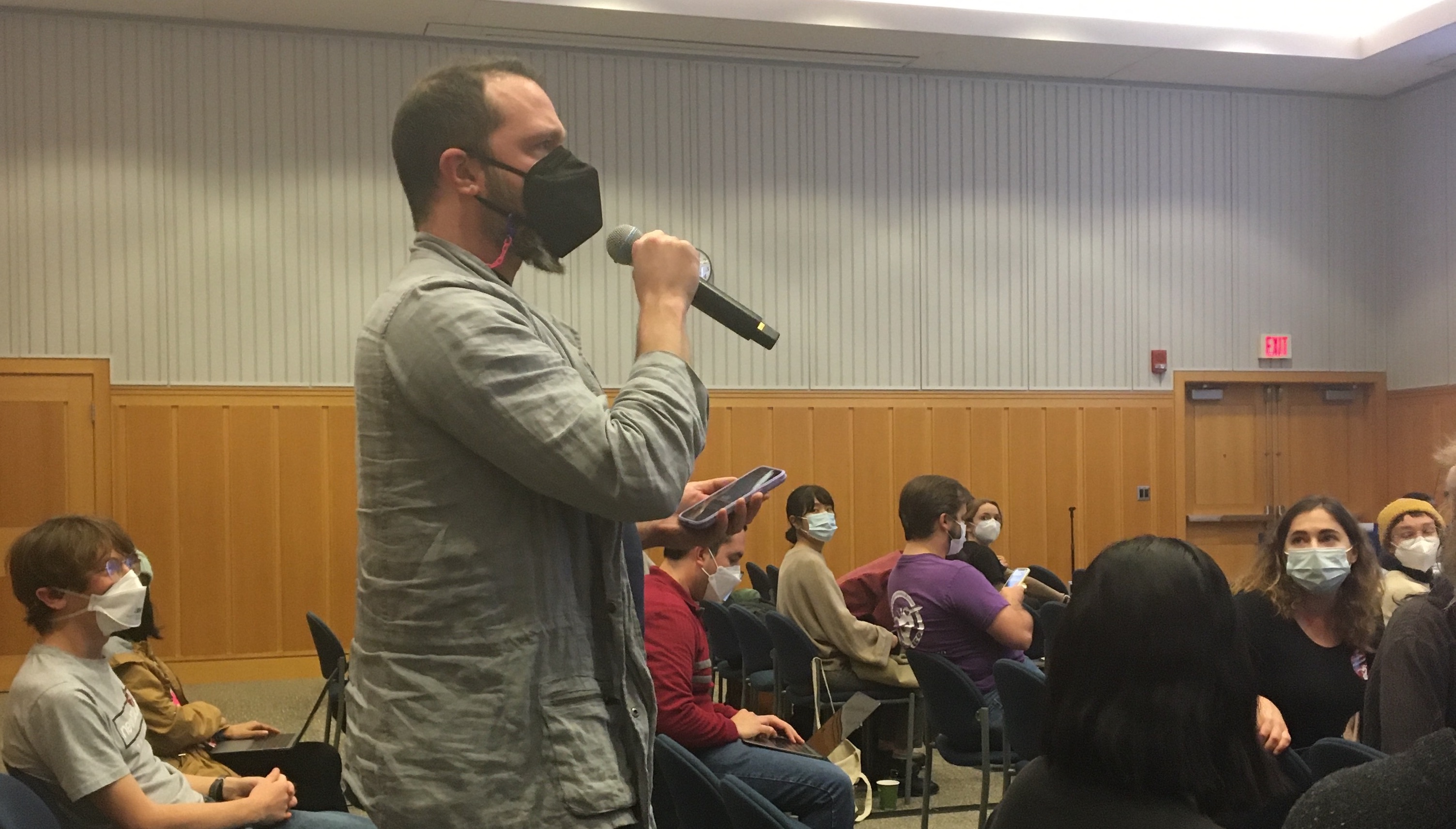Click here for a printable PDF version of this bulletin.
HR Tries to Mediate their way into Closed Bargaining
Despite two successful open bargaining sessions, HR brought in a mediator to today’s session citing ongoing concerns about “bargaining logistics.” Mediation typically only happens near the end of bargaining, when the two sides can’t agree on substantive issues. However, at this point, we have not received a single counteroffer from HR and the only pushback from them has been over ground rules, including not wanting grad workers to attend bargaining sessions. We met with the mediator today under the pretense that we would be figuring out these meeting logistics.
Instead, we were told that the mediation would cover substantive issues including wages, hours, and working conditions in a small room with only 15 bargaining team members present until we reach an agreement on our contract. Essentially, HR is trying to use mediation to impose their restrictive ground rules and keep grad workers out of bargaining sessions.
“I am very disappointed to have the mediation process start with the premise that our union’s autonomy as a democratic collective does not matter.” – Nora, Sociology
In caucus, grad workers stood united and refused to abandon our principles of open and transparent bargaining. GEO members developed clear ways to express our concerns to the mediator about bargaining behind closed doors. We asked the mediator how these closed meetings could proceed productively and efficiently when they go against members’ commitment to open bargaining, which prompted the mediator to take our concerns into consideration during the lunch break.
After lunch, the mediator brought management into the room with members to hear our proposals. Bottom line: we’ve sustained open bargaining despite HR’s intransigence and attempts at intimidation.
Open Bargaining Prevails
Once HR agreed to come to our room, with over 150 grad workers in attendance, GEO members passed important proposals about masking policies, international GSIs, abolition, master’s students, and workload issues. Bargaining team members then answered HR’s questions from last session, reiterating the need for raises pegged to cost-of-living to prevent the effective wage cuts we have suffered since 2019 due to inflation. HR shared that they “appreciate [our] members and their decorum” during the last three sessions.
“We’re disappointed about how obstructionist the university has been rather than moving things forward. They’re trying to make things restrictive in ways that don’t work for a democratically run union.” – Mariah & Carolyn, Ecology & Evolutionary Biology
What happens in January?
- The next bargaining session is set for Friday, January 6th, and HR says they would ask all of their questions about our proposals at that time.
- HR will not have any counteroffers prepared by January 6th; in past cycles, we had already received counteroffers by now.
- HR wants the mediator to attend future sessions, and they remain uncommitted to open bargaining in principle.
Bargaining will take place (almost) every Friday next semester. Sign up to attend January sessions at http://bit.ly/bargsesh.


Comments are closed